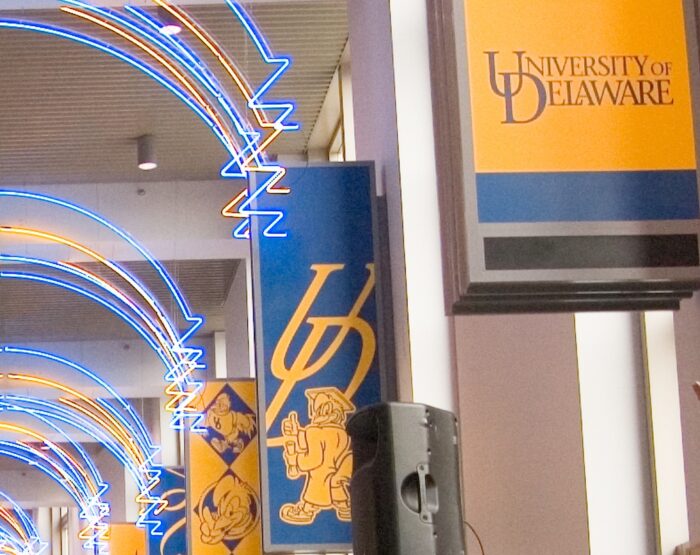Top Class Actions’s website and social media posts use affiliate links. If you make a purchase using such links, we may receive a commission, but it will not result in any additional charges to you. Please review our Affiliate Link Disclosure for more information.

University of Delaware Tuition Class Action Lawsuits Overview:
- Who: A federal appeals court judge has ruled against the University of Delaware in two lawsuits filed by students over online learning.
- Why: Students sued the university for not reducing its course fees when it switched to online learning during the COVID-19 pandemic. The university argued there was never any promise made for in-person learning, but the judge ruled that while there was no express contract, the university did not have a right to pocket savings made by switching to online learning.
- Where: The lawsuit is playing out in the Third Circuit Court of Appeals in Philadelphia.
Students who filed class action lawsuits against the University of Delaware alleging that the school was unjustly enriched by not reducing course fees when it switched to online learning during the pandemic have been told by an appeals court judge that their claims can move forward.
Third Circuit Judge Stephanos Bibas ruled against the university, which had argued to have the claims tossed saying that there was no express contract established between it and the students for in-person learning, Law360 reports.
Bibas decision applies to two class action lawsuits filed by students and parents, which are now in federal court, who allege that the university was unjustly enriched by not lowering its course fees for remote learning, and it should pay the difference in value between an in-person and online education.
The plaintiffs — University of Delaware graduate Michael Ninivaggi and his mother in one lawsuit and student Hannah Russo in the other — claim that the university established a contract with them for in-person classes through marketing and communication, and that contract was breached when schooling went remote.
Bibas ruled that although there was a lack of express contract, the university was not at liberty to pocket any cost savings it made with the transition to online learning. Although it was too early to tell if the students’ breach of contract claims would proceed, he upheld them for now.
“To be sure, even if there was a promise, the school was probably justified in breaking it,” he said. “But that would not end the case. Though impossibility might excuse the broken promise, the school should not be unjustly enriched. So it may need to return the money it saved, if any, by going online.”
He added that the students had plausibly alleged that the university promised them in-person classes, activities, and services.
“True, the school never promised them expressly. But promises need not be enforceable.”
University of Delaware has argued that the two cases suffer “the same fundamental flaws,” such as that Delaware law bars education malpractice claims, and the school reserved the rights to change policies and fees without notice.
Bibas agreed with the university that the conversion claims were “baseless,” and dismissed them. He said overall that the contract issues around college tuition were murky and although higher education involved a lot of money, it had few express contracts governing that money.
“Students borrow and spend tens if not hundreds of thousands of dollars to go to college. Yet they never sign an agreement of the sort they encounter when downloading an app,” he said.
Instead, he wrote, students must look to course catalogs and student handbooks, which were poor substitutes for comprehensive contracts. “Thus, when the unexpected happens, there may be no contingency plan or agreed upon remedies. Courts must sort out who promised what.
University of Delaware is far from the only college in the country to face legal action over the switch to online learning. In June, U.S. District Judge Katherine Polk Failla ruled that student Alina Flatscher’s complaint against the Manhattan School of Music could go ahead alleging breach of contract for the switch to online learning.
Do you think students should get some of their university fees reimbursed for the switch to online learning? Tell us your thoughts in the comments section!
The Ninivaggis are represented by Robert J. Kriner Jr. and Scott M. Tucker of Chimcles Schwartz Kriner & Donaldson-Smith LLP and Joshua D. Arisohn and Sarah N. Westcot of Bursor & Fisher PA.
Russo is represented by Christopher P. Simon and Michael L. Vild of Cross & Simon LLC and Eric M. Poulin and Roy T. Willey IV of Anastopoulo Law Firm LLC.
The university is represented by James Darlington Taylor Jr., Charles E. Davis, Aubrey J. Morin and Christina D. Riggs of Saul Ewing Arnstein & Lehr LLP.
The University of Delaware Tuition Class Action Lawsuits are Ninivaggi et al. v. University of Delaware, Case No. 1:20-cv-01478, and Russo v. University of Delaware, Case No. 1:20-cv-01693, in the U.S. District Court for the District of Delaware.
Don’t Miss Out!
Check out our list of Class Action Lawsuits and Class Action Settlements you may qualify to join!
Read About More Class Action Lawsuits & Class Action Settlements:
- Music to Students’ Ears: NYC Conservatory Must Face COVID-19 Tuition Claims, Judge Rules
- Udemy’s False Sale Pricing Scheme Misleads and Damages Consumers, Distorts Market, Class Action Alleges
- Law Professor Refuses COVID-19 Vaccine, Sues University for Making It Mandatory
- University of Florida Tuition Refund Due After COVID Online Learning, Says Class Action














